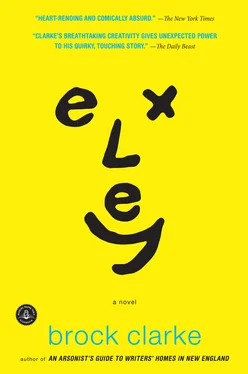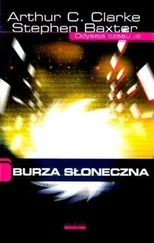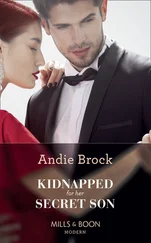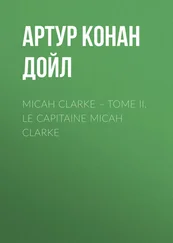“I guess.” H. looks back and touches his lip, and I deduce that H. received his wound in the vicinity of the Square, and I also deduce that M. is still there. I hurriedly reach into my jacket pocket, take out my wallet, open the wallet, extract my business card, and hand it to H. “I would greatly appreciate it if you’d ‘keep an eye on’ M.”
“Keep an eye on him?” H. says, looking at the card. I realize, too late, that the card identifies me as a mental health professional whose name is not Horatio Pahnee; but perhaps H. won’t realize the difference in names, or that I’m M.’s mental health professional. Perhaps H. doesn’t even know that M. is in need of a mental health professional. This is one of the most curious qualities of the juvenile mind: it is able to hide its illness from other juvenile minds. This is not to say that all juvenile minds are ill, but merely that they are not as well as the adult minds trained to diagnose and heal the sickest among them.
“Yes,” I say. “In particular, if you could let me know if he ever finds, or tries to find, a man named Exley.” H. touches his lip again at the name Exley, and in that way I surmise who has given him the wound. “Why would I want to do that?” H. asks.
I consider saying, Because you’re M.’s friend . But then again, if being M.’s friend has gotten H.’s lip bloodied, it’s probably not the best approach. As I say to all my patients, it’s a complicated bit of business, having friends: perhaps that’s why I’ve had so few of them. I take a twenty-dollar bill out of my wallet, hand it to H., and say, “That’s why.”
Then I turn and run toward the Public Square. As I reach the center of the Square, I see M. standing on the sidewalk on the far side, talking to an adult male reclined on that sidewalk. I hide behind the statue honoring our local soldiers and sailors and watch as M. pulls back his foot, and I think, Surely, M. wouldn’t kick this man! And then M. does kick him, quite solidly, in the rib region. Surely , I think, M. would not kick this man again! And then M. pulls back his foot to kick this man again; this time, however, his foot appears to be destined to strike the man’s face. But then M. does not kick. Perhaps because he regrets what he’s done. Or perhaps because the man is laughing, loudly and carelessly, as though being kicked was the best thing that could possibly have happened to him.
This reminds me of the time when I accepted an offer to join a practice in Watertown. I was just completing my graduate education in Rochester. The mental health professional who ran the practice, and who was its sole practitioner, promised he would retire in one year and then the practice would be mine (he kept his word), and he also promised I would never want for patients (I haven’t). So I accepted the offer, which was, in the spirit of full disclosure, my only offer. When I told my graduate adviser (who, it transpires, was a native Watertownian) of my decision, he said — barked, rather — “Watertown!”
“Yes,” I said. “Have you ever heard of it?”
“‘Have I ever heard of Watertown? That’s where the goddamn animals are. ’” His words were angry, but he was smiling when he said them, the way Exley seems to enjoy M.’s kicking him in the ribs. The way M. loves his father — and the way M.’s father (and M. himself?) love this Exley and his book — for all the reasons the father and the book and its author seem to me to be unlovable. Perhaps this is what it means to be from Watertown: to take pleasure in something that should give you pain. Perhaps this is why I’ve never felt at home here.
In any case, M. considers the man for an additional moment or two and then walks into the Crystal Restaurant. Once the door has closed behind him, I creep across the Square and approach the man. The man is no longer laughing or even conscious: he appears to be asleep, but as I get closer I can hear him muttering the most inappropriate things imaginable. I will not sully you, Notes, by including those words here, but I will say that much of the invective is, for a creative writer, surprisingly uncreative . Which leads me to believe that this man, whoever he is, and although he appears to be inebriated, as Exley apparently often is, and filthy, as drunks often are, is not Exley. But how to be sure? Resting on the sidewalk, to the right of the man, is a backpack of apparently military origin. The top is cinched, and I bend over, uncinch it gently, quietly. Then I reach inside, all the while keeping my eye on the man, in case he starts to awake. First, I pull out a paintbrush, then a piece of rope, then several screwdrivers of various lengths; in this way I determine that the man is a laborer — a laborer and, indeed, a manual laborer . Finally, though, I find something of use to someone like me, who is, after all, not a manual laborer: a wallet. I open it. There are no bills in the billfold, but there is a driver’s license. It is expired, twice over. But no matter, because I find on the license what I’m looking for: the man’s name is U.L.B. Not Exley, in other words. I look up at the man, and — gasp! — he’s looking at me with a queasy, slightly unfocused expression on his face. He belches, considers his wallet in my hand, then spits out (oh, forgive me, Notes!), “You fucking fuck .”
“You dropped this,” I say. Then slowly I pull my wallet out of my jacket packet, withdraw a twenty-dollar bill, hold it up so that U.L.B. can see it, place the currency in his wallet, close the wallet, and return it to his backpack. I even give the pack a good cinching before handing it to him. He doesn’t take it, not at first: instead, he looks at me with a marked surliness, and I remember H.’s lip and think, Please don’t hit me . And then he takes the backpack, opens it, withdraws the wallet, and opens it, and I remember the twenty I gave H. earlier and think, It is expensive being a detective . And then U.L.B., accompanied by a symphony of curses and grunts, gets to his feet and staggers away.
Once he is out of sight, I turn and look into the Crystal’s front window. I see M. standing next to the “bar” area, talking to four adult males. He has a book in his hand, and although I cannot see the cover, I feel certain it is A Fan’s Notes . One by one, he hands them the book; one by one, they read the back cover, then hand the book back to M. I can see the expressions on M.’s face. Each time a man hands the book back to M., he looks disappointed; but then he looks at the book itself and his expression changes, and in it I can see a little bit of pride, a little bit of hope, and so much love. I wonder if M.’s father and mother have looked at M. the way M. looks at A Fan’s Notes . I wonder if there’s a way M.’s mother can be convinced to look at me the way her son looks at Exley’s book. The best way, of course, is to heal her son. But in order to heal him, I first must know the extent of his illness. And if I am to know the extent of his illness, then M. must not know I am spying on him. Not yet.
Just then, one of the men points in my direction, and I “duck” and then flee.
Inside the Crystal
The usual scene at the Crystal. I knew it was the usual scene because I used to go there with my dad, every Sunday morning before he left for Iraq. I hadn’t been there since he’d left. And I don’t think I’d ever been there at one in the afternoon on a Monday. But it was the same as it was on Sunday morning. The air was full of the smells and sounds of the griddle. On the griddle, I could see the eggs bleeding over into the circles of pancake batter. As a little kid I’d called it pancake “better,” which was, in fact, what the bleeding eggs were making it. The big twelve-slice toasters were being loaded, fired, reloaded. The tables were filled with men and women on lunch break from the banks or the county offices. The men had tucked their ties into the middle of their shirts; the women were leaning way over their plates, so whatever fell from their mouths wouldn’t fall on their clothes. All of them were eating quietly. It was probably the very end of their lunch hour. Whatever they’d missed with their forks, they were now mopping up with their toast. I saw one guy who’d already eaten his toast dip his index finger into a puddle of syrup and yolk. He stuck the finger in his mouth, then pulled it out with a wet, sucking pop . At the bar were four guys who had just woken up from the night before. They were standing, because no one ever sat at the bar, because there were no seats. Their hair was wet; I could see the comb marks. Their faces were red, like they’d been scoured. These guys were drinking beer, but slowly, eyes on the newspapers in front of them. I started with these guys, maybe because they looked familiar — I don’t think I’d ever seen or met them, but they looked like the type of guy whom my dad might have known, or who might have known him. Anyway, I showed them the picture of Exley on the back of the book, and then I asked if they recognized him or his name and if they knew where I could find him. Here’s what they told me:
Читать дальше












